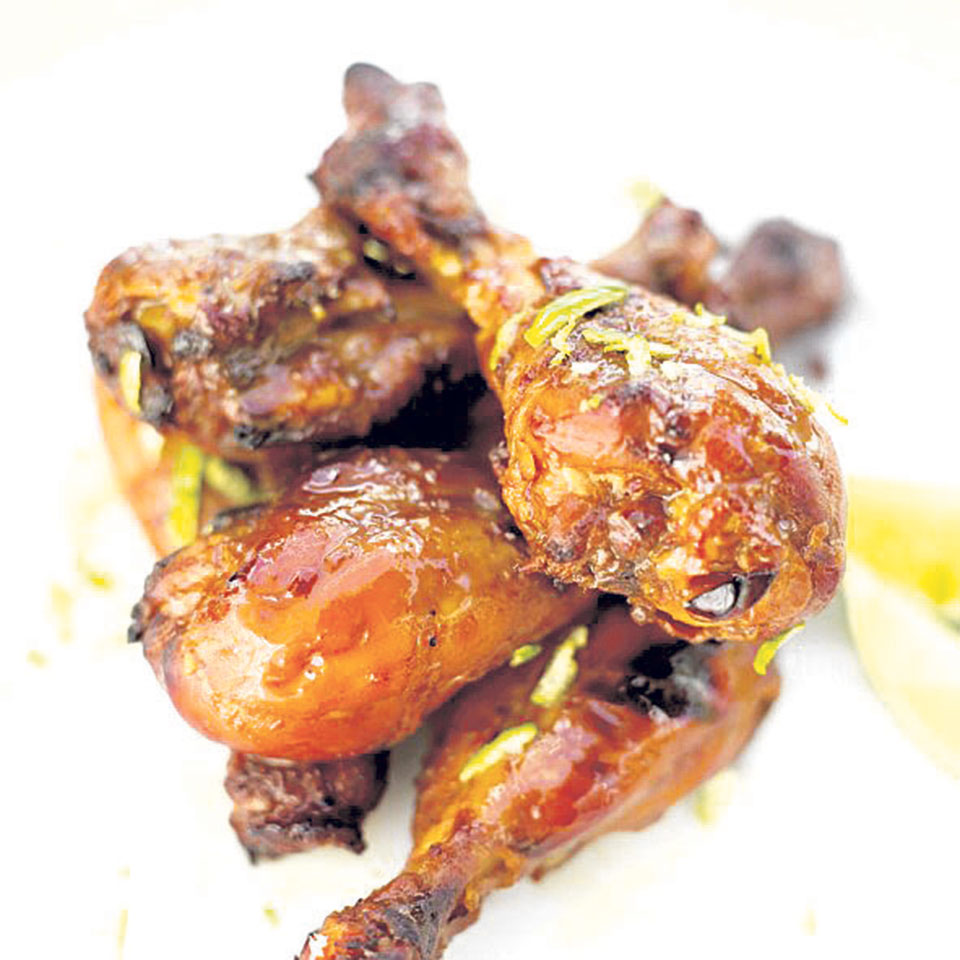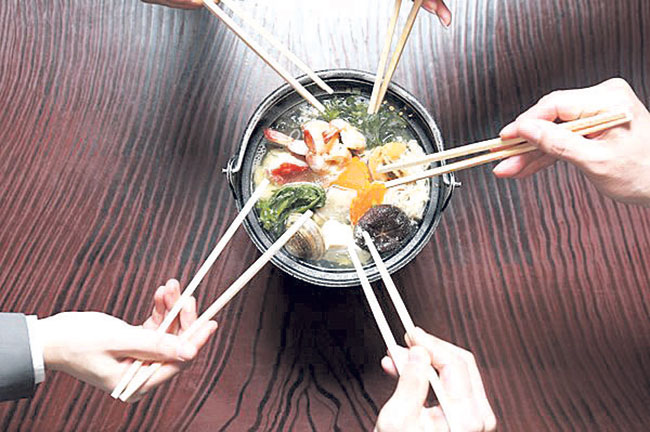60 artworks by 50 artists exhibited in Thamel
2 days ago
We are a team of professional management and journalists — one of the best in the Nepali media. Our duty toward our readers is to provide them with impartial news, bold views, in-depth analysis and thought-provoking commentary. We shall do this without fear or favor, and we shall be guided by nothing but our conscience.
Know More
7 days ago

16 days ago

'When in Rome,' or wherever you travel, you're bound to encounter food customs that you never knew existed. Whether it's flipping a fish on a plate or stabbing chopsticks into a bowl of rice, there are many ways to offend with food. Learn a thing or two before your next trip, and you'll know how to eat like a local.
 Don't Fork Around
Don't Fork Around
You probably think the fork should be used to spear food from your plate in order to place it in your mouth. Not in Thailand, however, where it's considered crude and low-class to eat this way, when everybody knows the only use for this utensil is to push food onto a spoon, which is then placed into the mouth.
Slurp Loud, Slurp Proud
While you probably consider slurping noodles to be rude, this is not the case in Japan. In fact, slurping is not only acceptable, but encouraged, as it's believed to improve the noodles' flavor and considered to be evidence that you enjoyed your meal.
Right Hand Man
Many Middle Eastern cultures encourage eating with one's hands, but that doesn't mean all hands are created equal. In fact, the right hand is reserved for handling food, and reaching for food with the left hand is considered to be an insult to one's host.
Fish is Never Cheesy
Most North Americans think nothing of adding grated parmesan to a plate of shrimp linguine, or some other type of seafood pasta, but this is unheard of in Italy, where the idea of combining cheese and seafood is seen as a culinary catastrophe.
Respect Your Elders
In South Korea, it's seen as a sign of great respect to refrain from beginning to eat until the oldest person at the table has had his or her first bite. Only then can everyone else join in.
Chopstick Etiquette
Leaving your chopsticks sticking upright in a bowl of rice is seen as gauche in China, as that's how ceremonial rice is typically left as an offering at funerals. It's also seen as the height of rudeness to wave chopsticks in someone's direction, or even to leave them on the table pointing directly at someone else.
Clean Your Plate... Or Don't
In Japan and India, cleaning one's plate is seen as honoring your host, expressing how much you enjoyed the meal. But this isn't true everywhere. In China, for example, it's seen as a message that your host didn't feed you enough, and it's considered rude to not leave at least a bit of uneaten food on the plate.
After-Dinner Milk, Anyone?
Italians will give you the evil eye if you order a frothy cappuccino after dinner, as drinking milk after a meal is seen as hindering indigestion. While ordering a milky beverage after a meal in Italy won't incite outrage, it will out you as a tourist.
Don't Flip the Fish
If served a whole fish in China, the worst thing you can do is flip it over to get at the other side. Flipping a fish is superstitiously known to symbolize capsizing a boat — never a good thing.
Chopsticks, Unite!
One should never pass food to someone else using chopsticks when dining in Japan. That's because bones are passed this way during funeral rituals, and who wants to be reminded of a funeral in the middle of a meal?
Tea Time
When drinking tea in Britain, there are a lot of rules to observe — many involving the teaspoon. For example, when stirring tea, the spoon should never touch the sides of the cup, thus avoiding that annoying tinkling sound (and possibly chipping fine-bone china). Also, never leave the spoon in the cup; place the spoon on the saucer like a proper tea drinker.
Pour It On
In Korea, it's seen as the height of rudeness to pour a drink for oneself; the proper etiquette is to wait for someone to do it for you or, if it's too long of a wait, simply ask someone to pour it for you.
Look, No Hands
Even if chicken drumsticks are on the menu, in Chile it's customary to use a knife and fork to eat, well, pretty much everything. Food, it's believed, should never be eaten with one's hands.
Salt and Pepper
When dining in countries such as Portugal and Egypt, asking for salt and pepper is akin to slapping the chef across the face, seen as a huge offence to whoever cooked the meal.
Leave A Comment